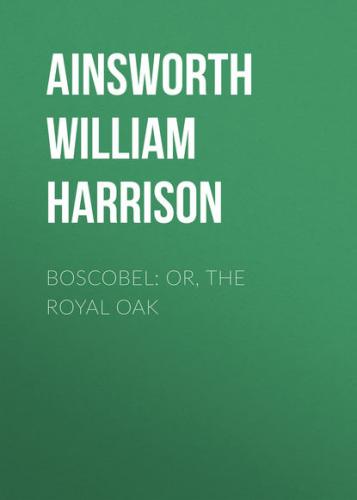"I have a further proof of treachery, sire," said Colonel Legge. "Cromwell himself, with his body-guard of Ironsides, was with the outpost when I attacked it."
Charles could not repress an exclamation of rage.
"That we have been bought and sold is certain," he exclaimed. "But who can have betrayed us?"
"I think I can give a shrewd guess as to the villain who has thus traitorously discovered the design," said Careless, "and if I am right he shall not escape chastisement."
"Whoever the traitor may be," observed the king, "he must have obtained early information, and have acted with the greatest promptitude, or the enemy could not have been prepared at all points for the attack. Cromwell must have clever and active spies in the city."
"True, sire," replied Middleton. " And I now recollect that, during our conference in the adjoining chamber, a man in the garden approached somewhat near to the open window. At the time I did not suspect his motive, but I now believe he was a spy."
"It may be so," observed Charles.
"Whether General Middleton is right or wrong in his suspicion, I am certain I can discover the traitor, sire," said Careless. "I have a clue to his hiding-place, and before many hours I engage to produce him."
"It will be some satisfaction to hang the villain," observed Charles.
"Your majesty may rely upon having that gratification," replied Careless. "With your permission, I will set about his capture at once. Nor will I rest till I have effected it."
And bowing to the king he quitted the hall.
In the court-yard of the Commandery was the king's ordinary guard. Taking two of the men with him, Careless proceeded to the Sidbury-gate, passed through the wicket with his attendants, and in another minute was in Friars'-street.
So dark was the narrow street, owing to the projecting stories of the ancient timber houses lining it on either side, that Careless was unable to discern any object unless close at hand. A heavy, measured tread, however, informed him of the approach of the rounds, and the next moment the patrol came up.
Captain Woolfe, who was with the guard, immediately recognised his superior officer, and on learning Careless's business, proffered his aid. They proceeded together to the old inn, followed by the whole party.
It would seem that all the inmates had retired to rest, but the knocking of a halbert staff against the door soon caused it to be opened by Master Kilvert, the host, who had hastily huddled on his apparel, and in a trembling voice inquired the meaning of this nocturnal visitation.
No explanation was vouchsafed him. Ordering the guard to post themselves secretly on the other side of the street and be ready to answer any summons, Careless and Captain Woolfe entered the house, shutting the street door after them.
The terrified host conducted them to the principal room, and setting down the light with which he was provided, humbly waited their pleasure to address him.
"Answer truly the questions I shall put, and you have nought to fear," said Careless. "You have a lodger named Urso Gives?"
"Your honour has been rightly informed," replied Kilvert. "Master Gives, the tailor, with his wife and his wife's grandmother, are lodging in my house. Master Gives is a worthy and God-fearing man, or I would not have him as a guest."
"Your description of him is altogether inaccurate. He is a traitor and a spy. Lead us to his chamber instantly, and call him forth," said Careless, drawing his sword.
"I will lead your honour to his chamber," replied Kilvert, now still more alarmed. "But it will be useless to call him, seeing he is not there."
"I must be assured of this," said Careless. "Lead us to the room."
"I shall not need to do so, for here comes his wife, who will confirm what I have just declared to your honour."
Конец ознакомительного фрагмента.
Текст предоставлен ООО «ЛитРес».
Прочитайте эту книгу целиком, купив полную легальную версию на ЛитРес.
Безопасно оплатить книгу можно банковской картой Visa, MasterCard, Maestro, со счета мобильного телефона, с платежного терминала, в салоне МТС или Связной, через PayPal, WebMoney, Яндекс.Деньги, QIWI Кошелек, бонусными картами или другим удобным Вам способом.
